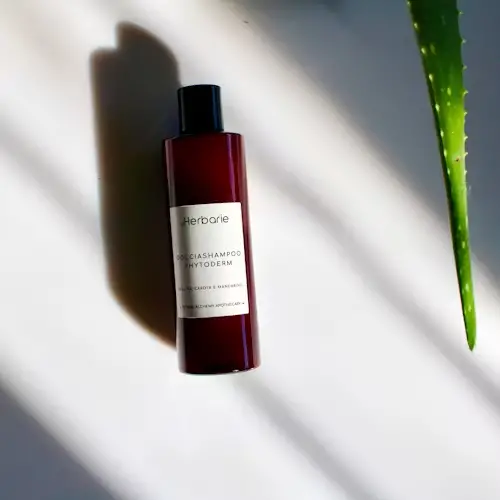Unlocking the Power of Retinol: Uses, Side Effects, and Safe Practices

Introduction: Retinol, often hailed as the gold standard in skincare, has garnered widespread acclaim for its remarkable ability to transform the complexion. From smoothing fine lines to fading dark spots, this powerhouse ingredient offers a multitude of benefits for achieving healthy, radiant skin. However, like any potent skincare ingredient, retinol comes with its share of potential side effects. In this article, we’ll explore the uses of retinol, common side effects, and strategies for minimizing or avoiding them to ensure a positive skincare experience.


Page Contents
The Four (4) Uses of Retinol:
Retinol, a derivative of vitamin A, boasts a myriad of benefits for the skin:
- Anti-Aging: Retinol stimulates collagen production, reducing the appearance of fine lines and wrinkles, and promoting firmer, smoother skin.
- Skin Renewal: By accelerating cellular turnover, retinol helps shed dead skin cells, revealing fresh, radiant skin beneath.
- Hyperpigmentation: Retinol inhibits melanin production, making it effective in fading dark spots, sun damage, and other forms of hyperpigmentation.
- Acne Treatment: Retinol unclogs pores, regulates sebum production, and reduces inflammation, making it a potent treatment for acne and preventing breakouts.
The Four (4) Common Side Effects of Retinol:
While retinol can deliver impressive results, it may also cause side effects, especially when first starting or using higher concentrations:
- Dryness and Peeling: Retinol can cause dryness, flakiness, and peeling, particularly in the early stages of use as the skin adjusts to the ingredient.
- Redness and Irritation: Some individuals may experience redness, stinging, or burning sensations, especially with higher concentrations or frequent use.
- Increased Sensitivity to Sun: Retinol can make the skin more susceptible to sunburn and UV damage, leading to increased sensitivity and potential sunburn if adequate sun protection is not applied.
- Purging: In some cases, retinol may cause a temporary increase in acne or breakouts as it accelerates skin cell turnover and brings underlying impurities to the surface.
6 Tips to Minimize Side Effects:
To minimize or avoid side effects while using retinol, consider the following tips:
- Start Slowly: Begin with a lower concentration of retinol and gradually increase frequency or strength as your skin builds tolerance.
- Use Sparingly: A pea-sized amount of retinol is sufficient for the entire face. Avoid applying too much product, which can increase the risk of irritation.
- Moisturize: Follow up retinol application with a gentle, hydrating moisturizer to help alleviate dryness and soothe the skin.
- Use Sun Protection: Apply broad-spectrum sunscreen daily, preferably SPF 30 or higher, to protect the skin from UV damage and minimize sun sensitivity.
- Limit Frequency: If experiencing excessive dryness or irritation, reduce the frequency of retinol application to every other day or less until skin adjusts.
- Avoid Harsh Products: Steer clear of abrasive scrubs, exfoliants, or other potentially irritating skincare products while using retinol to prevent further irritation.
When using retinol treatment, it’s essential to avoid harsh bath soap products and night cream products that can exacerbate dryness, irritation, and sensitivity. Here are some common ingredients and types of products to watch out for:
The Four (4) Harsh Bath Soap Products:
- Sulfates: Sodium lauryl sulfate (SLS) and sodium laureth sulfate (SLES) are common surfactants found in many bath soaps. These can strip the skin of its natural oils, leading to dryness and irritation.
- Fragrances: Synthetic fragrances and perfumes can contain allergens and irritants that may aggravate sensitive skin, especially when combined with the exfoliating effects of retinol.
- Alcohol: Some bath soaps contain alcohol, which can be drying and irritating to the skin, particularly when used alongside retinol.
- Harsh Exfoliants: Bath soaps with abrasive exfoliants like microbeads or rough particles can further irritate the skin, especially when undergoing retinol treatment.
Four (4) Night Cream Products:
- Highly Fragranced Products: Like bath soaps, night creams with synthetic fragrances can potentially irritate the skin, leading to discomfort and sensitivity.
- High Concentrations of Active Ingredients: While certain active ingredients like AHAs (alpha hydroxy acids) or BHAs (beta hydroxy acids) can complement retinol in skincare routines, using products with high concentrations of these ingredients alongside retinol may increase the risk of irritation.
- Alcohol-Based Formulas: Night creams containing high amounts of alcohol can be drying and irritating to the skin, especially when combined with the exfoliating effects of retinol.
- Physical Exfoliants: Night creams containing physical exfoliants such as scrub particles or granules can be too harsh when used in conjunction with retinol, leading to increased sensitivity and potential irritation.
Recommendations:
When using retinol treatment, opt for gentle, fragrance-free bath soap products and night cream products that prioritize hydration and soothing properties. Look for labels indicating “gentle,” “fragrance-free,” “alcohol-free,” and “suitable for sensitive skin.” Additionally, consider products specifically formulated for sensitive or reactive skin types to minimize the risk of irritation.
Consult with a Dermatologist for Personalized Recommendations
Incorporating retinol into your skincare routine requires careful consideration of the products you use to avoid exacerbating dryness, irritation, and sensitivity. By steering clear of harsh bath soap products and night cream products containing potential irritants like sulfates, fragrances, alcohol, and harsh exfoliants, you can help ensure a more comfortable and effective retinol experience. Always listen to your skin and adjust your skincare routine as needed to maintain a healthy, balanced complexion. If you have specific concerns or questions about product ingredients, consult with a dermatologist for personalized recommendations.
Conclusion:
Retinol is a powerful ally in the quest for healthy, youthful-looking skin, offering a host of benefits from anti-aging to acne treatment. However, it’s essential to be aware of potential side effects and take precautions to minimize them. By starting slowly, using sun protection, and listening to your skin’s needs, you can harness the transformative power of retinol while maintaining a balanced, glowing complexion. If you experience persistent or severe side effects, consult with a dermatologist for personalized guidance and recommendations tailored to your skincare concerns.






